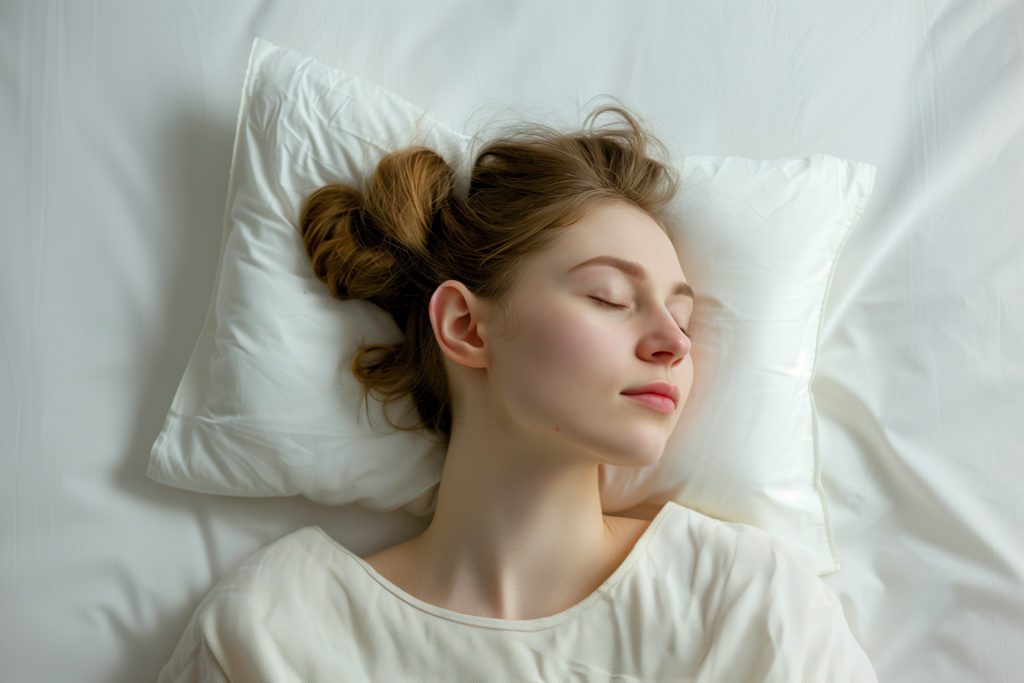
Tobacco and Dreaming: How Smoking Affects Your Dream Recall and Sleep Quality
Curious how smoking impacts your sleep? Discover what research says about nicotine’s impact on dream recall and overall sleep quality.

Our sleep is affected by many things, including our daily habits. If you smoke tobacco, you might be surprised to find out that it can impact your sleep quality but also your dream recall. Many people know that nicotine, a stimulant found explicitly in the tobacco plant, can actually cause decreased appetite and heightened mood. However, few realize that its impact on increased alertness might actually hurt your sleep.
In this article, we’ll explore the relationship between smoking and sleep, diving into how smoking affects your sleep quality. From fragmented sleep to reduced REM sleep, you’ll learn how nicotine impacts your body while you rest and exactly why this matters, too.
Additionally, we’ll also look at the latest research on dreams, specifically discovering more about tobacco impacts dream recall, or the potential to struggle in this area. Let’s get into the first topic of discussion: how smoking impacts the quality of your rest.
The Impact of Smoking on Sleep Quality
Like many other substances—including alcohol and certain medications—tobacco can affect our rest and relaxation. More specifically, according to research, it could lead us to have difficulty falling and staying asleep, to experience fragmented sleep, and to experience a reduction in our REM sleep. Let’s explore each of these topics in-depth.
1. Insomnia-Like Effects and Difficulty Falling Asleep
As a stimulant, tobacco has an interesting effect on our sleep and how rested we feel when we wake up. Much like drinking a cup of coffee, you tend to feel a jolt of energy when you have a cigarette. You may even experience better memory recall, too, while awake and alert. While you might feel you need that cigarette before you head to bed, research shows it could be keeping you up.
One study showed that tobacco actually caused smokers to experience insomnia-like sleep impairments, including disrupted sleep, difficulty falling asleep, and more (Source: Sleep Medicine). More specifically, this study showed that smokers had longer sleep latency and REM sleep latency but a shorter sleep time period overall. Yet, tobacco use is also tied to fragmented and disrupted sleep patterns, showing that nicotine harms our sleep health.
2. Fragmented and Disrupted Sleep Patterns
Another common impact of smoking is that it can lead to fragmented and disrupted sleep patterns, further worsening your sleep quality. Because nicotine is a stimulant, it is only expected that it will stimulate the brain, keeping you up for longer. During the sleep cycle, the impact of nicotine within the body can actually cause sleep disturbances, disrupting your sleep cycle and leaving you waking up more than usual throughout the night.
With this, the more nicotine that is in your system, the more likely you are to experience sleep-wake cycle disruptions. Still, it only further goes to show that tobacco does not help your sleep but actively hinders it the more you practice this habit. Because of this, you may also be more likely, as a smoker, to feel more fatigued throughout the day.
3. Reduced REM Sleep
Finally, smoking impacts sleep quality by also reducing REM sleep, an essential part of your body’s rest and recovery. Studies have confirmed that nicotine can impact sleep and it can prolong total sleep and REM latency, leading to impaired sleep. The higher the dose of nicotine as well, the more likely you are to suppress and reduce REM sleep, making it harder for your body to enjoy quality rest overnight (Source: Journal of Clinical Medicine).
Because of this, it is common for many smokers to struggle with insomnia and even sleep disorders that are characterized by REM sleep changes. If you smoke yourself and have experienced these impacts, this is likely why. Over time, while it might not seem pertinent immediately to fix, this lack of quality sleep can impact you in harmful ways, limiting your overall well-being.
However, what about dream recall? That’s another area of focus that we are going to examine, specifically to see if smoking limits or enhances dream recall.
Does Smoking Enhance or Limit Dream Recall?
While you might think that a stimulant can increase your dream recall as a smoker, the research actually presents mixed results. Most of the researchers agree that smoking, because of how it impacts REM sleep and the sleep cycle, can lead to a lack of dream recall. In one study, however, researchers showed that there was no difference between those who smoked and those who did not when they recorded their dreams.
However, for those who are taking smoking cessation treatments, some of these methods can actually lead to better dream recall without any abnormal dreams. Even more interestingly, the rate at which sleep is fragmented is intercorrelated to dream recall. In other words, if sleep is fragmented, then people will not be able to recall their dreams, and vice versa (Source: Sleep Medicine).
So, evidently, the research shows mixed results, but we can conclude one thing: smoking, if it leads to fragmented sleep, can limit dream recall, while better sleep might make it easier to remember one’s dreams.
Encourage Healthier Habits and Better Rest
While it can be tempting to reach for the cigarette or the tobacco, it can lead to poorer sleep all around. We have explored how tobacco or nicotine can leave you with insomnia-like symptoms and cause you to experience disrupted sleep.
We’ve also discussed how it reduces REM sleep and what it does to your dream recall. Even though there is still so much research out there to conduct, it is important for us to take care of our bodies and sleep health. How we rest, after all, is directly connected to how great we feel.
To learn more about how tobacco and other substances impact your sleep health, visit our website to read the latest insights from our experts. We hope that this article was informative and showed you more about how to achieve optimal sleep health!
FAQ
Does secondhand smoke exposure affect non-smokers' sleep quality?
Yes, secondhand smoke exposure can lead to poor sleep quality in non-smokers. Studies show it may cause sleep disturbances, including difficulty falling and staying asleep. This is likely due to nicotine’s stimulating effects and respiratory irritation, which can disrupt sleep patterns.
Can nicotine replacement therapies (NRTs) affect sleep and dreams?
Yes, nicotine patches and other NRTs can affect sleep, often causing vivid dreams or nightmares. This happens because nicotine influences REM sleep, the stage when most dreaming occurs. Wearing a nicotine patch overnight increases the likelihood of experiencing intense or bizarre dreams, which some users find disruptive.
How does smoking influence the risk of developing sleep apnea?
Smoking increases the risk of sleep apnea by causing inflammation, mucus buildup, and airway irritation, leading to obstructed breathing. Nicotine can also disrupt sleep by causing frequent awakenings. Studies show that smokers are more likely to develop or worsen sleep apnea symptoms compared to non-smokers.
Can improving sleep hygiene mitigate the negative effects of smoking on sleep?
Good sleep hygiene can help but may not fully counteract the effects of nicotine on sleep. Strategies like maintaining a regular bedtime, reducing screen exposure, and avoiding caffeine may help smokers sleep better. However, quitting smoking remains the most effective way to improve long-term sleep quality.
Can smoking worsen restless legs syndrome (RLS)?
Yes, smoking may worsen symptoms of restless legs syndrome (RLS). Nicotine affects dopamine levels in the brain, which play a role in RLS. Smokers with RLS often experience more severe discomfort and difficulty falling asleep, as nicotine withdrawal at night can trigger leg movements and sleep disruptions.
Can vaping also worsen sleep quality?
Yes, vaping worsens sleep quality by delaying sleep onset, reducing REM and deep sleep, and causing frequent awakenings due to nicotine withdrawal. It can also raise heart rate, increase insomnia risk, and aggravate sleep disorders like apnea and restless legs syndrome, leading to poor, less restorative sleep.

Written by
Marie Soukup
Marie Soukup is a seasoned copywriter, editor, and Integrative Nutrition Health Coach with a certificate from the Institute of Integrative Nutrition (IIN). With years of experience working with brands across diverse industries, Marie is passionate about holistic health and crafting compelling content.
Download Pillow
Get help
Press & News
Legal
Connect
X (Twitter)
Company
Copyright © Neybox Digital Ltd.



